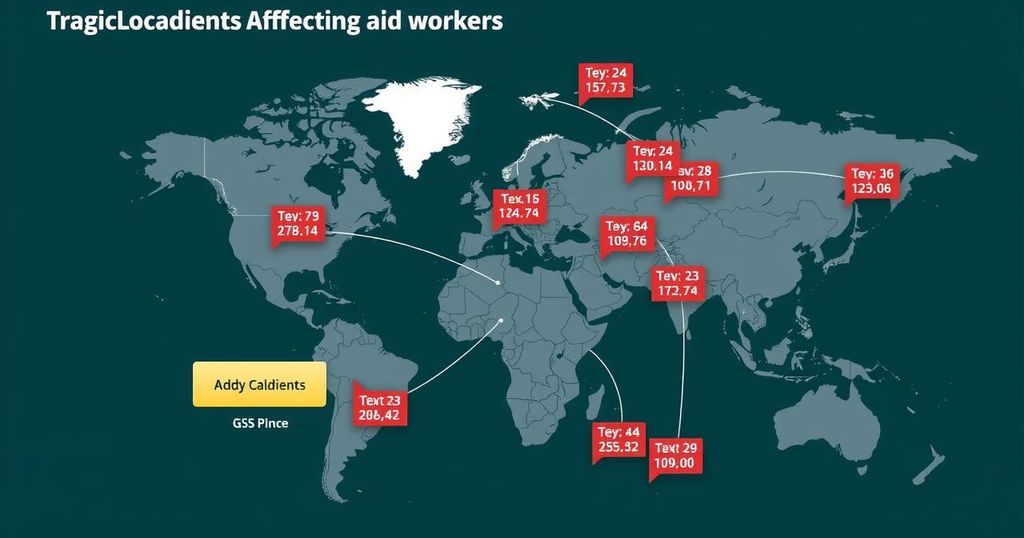Urgent Call for Humanitarian Protection Amid Rising Violence Globally

The report from OCHA indicates a record high of 281 aid worker fatalities in 2024, primarily due to violent conflicts in Gaza, Lebanon, Haiti, Ukraine, and Guinea. The humanitarian situations in these areas demonstrate critical needs for food, shelter, and medical aid while the safety of humanitarian personnel remains at risk. International action is urgently required to protect aid workers and address the extensive humanitarian crises affecting millions globally.
The international humanitarian landscape currently faces immense challenges, as evidenced by the grim report from OCHA revealing that 2024 has already become the deadliest year on record for aid workers, with 281 fatalities. This alarming rise in violence is notably driven by ongoing conflicts, particularly in Gaza, where humanitarian personnel risk their lives to provide essential services amidst increasingly dangerous conditions. The situation in the Occupied Palestinian Territory underscores the dire need for enhanced protection for aid staff, as military operations have severely hampered humanitarian efforts, especially in North Gaza, where essential supplies have been critically limited.
Simultaneously, Lebanon is enduring substantial civilian casualties as a result of intense airstrikes, with OCHA highlighting the targeting of healthcare personnel and facilities. In Haiti, escalating armed violence has displaced over 40,000 individuals within the capital, prompting urgent humanitarian responses including the distribution of water and medical support. In Ukraine, ongoing conflict continues to exacerbate humanitarian needs, particularly with winter approaching, where energy infrastructure is routinely under attack, impacting civilian safety and security. Finally, the Emergency Relief Coordinator has allocated significant funding to address the severe impact of flooding in Guinea, emphasizing the UN’s commitment to support affected communities.
These conflict zones demonstrate the vast humanitarian crises that persist globally, demanding a coordinated response from the international community to ensure the safety of aid workers and the provision of necessary support to those in dire situations. The commitment to uphold international humanitarian laws and protect vulnerable populations must remain a priority in these challenging times.
In light of the recent developments outlined in the OCHA report, it is essential to understand the context of humanitarian work amid escalating conflicts worldwide. Aid workers carry out indispensable tasks during crises, yet they face increasing dangers on the ground. As various regions experience warfare, natural disasters, and civil unrest, the UN and partner organizations strive to deliver critical aid despite facing significant access restrictions and threats to their safety. Notably, areas such as Gaza, Lebanon, Haiti, Ukraine, and Guinea illustrate the multifaceted nature of humanitarian needs and the ongoing struggle to maintain assistance amidst hostility.
The continuing rise of violence against humanitarian workers highlights a pressing need for international action to ensure their protection and the integrity of humanitarian operations. The reports from Gaza, Lebanon, Haiti, Ukraine, and Guinea vividly reflect the urgent requirements for food, shelter, medical care, and safety for millions affected by these crises. The commitment to uphold principles of humanitarian law is paramount to mitigate further suffering and to safeguard those who are dedicated to assisting vulnerable populations.
Original Source: www.unocha.org








